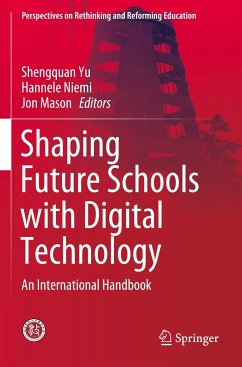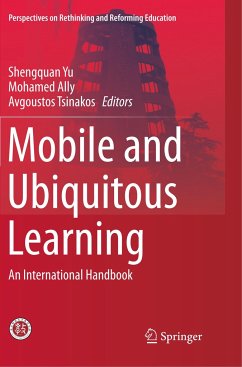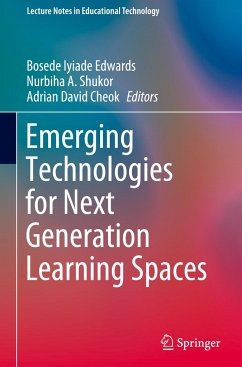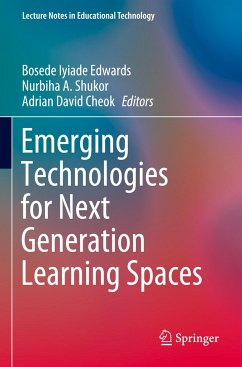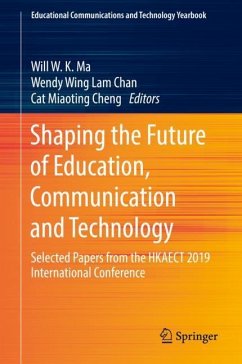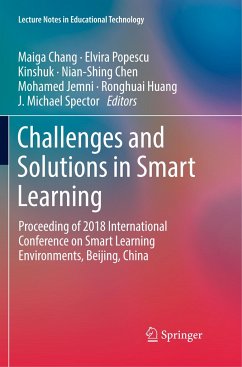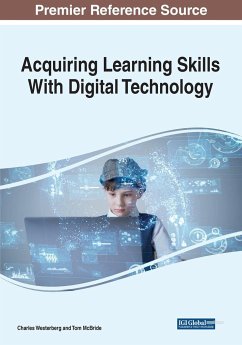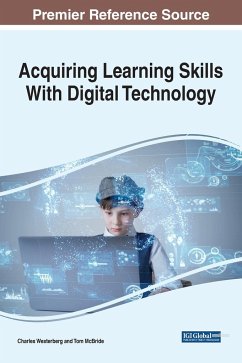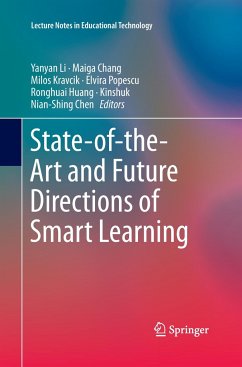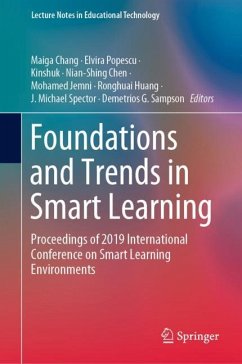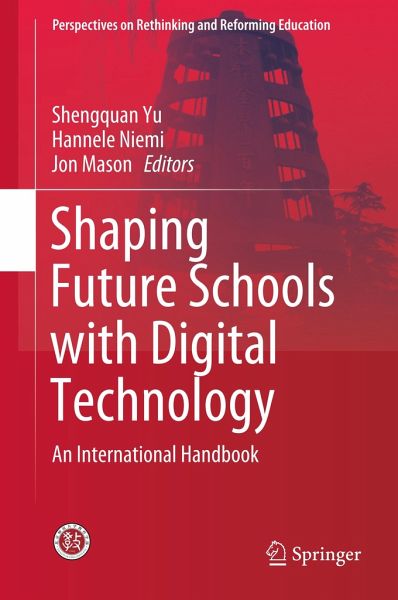
Shaping Future Schools with Digital Technology
An International Handbook
Herausgegeben: Yu, Shengquan; Niemi, Hannele; Mason, Jon

PAYBACK Punkte
42 °P sammeln!
This book presents an overview of education technology and its use in schools, with a primary emphasis on best practices of technology enhanced learning; how new technologies such as mobile, augmented and wearable technologies affect instructional design strategies; and the content curriculum development process. Providing insights into the future of education and the upcoming pedagogies that will be applied in schools, it helps educators and other stakeholders make innovations for the new generations of learners in the 21st century.The use of emerging technologies such as mobile and ubiquitou...
This book presents an overview of education technology and its use in schools, with a primary emphasis on best practices of technology enhanced learning; how new technologies such as mobile, augmented and wearable technologies affect instructional design strategies; and the content curriculum development process. Providing insights into the future of education and the upcoming pedagogies that will be applied in schools, it helps educators and other stakeholders make innovations for the new generations of learners in the 21st century.
The use of emerging technologies such as mobile and ubiquitous technologies, context-aware technology, augment-reality, and virtual reality is contributing to making education adaptive and smarter. With the ever-changing technologies, how to equip teachers with these digital skills and transform their teaching style is also important to ensure that school education is more individualised and customised for students.
Offering a global perspective with integrated practical cases, this timely book is of interest to educators, teachers, and education policymakers. And although most of the authors are from the academia, it provides non-experts with a novel view of what future schools will be like with the help of technology.
The use of emerging technologies such as mobile and ubiquitous technologies, context-aware technology, augment-reality, and virtual reality is contributing to making education adaptive and smarter. With the ever-changing technologies, how to equip teachers with these digital skills and transform their teaching style is also important to ensure that school education is more individualised and customised for students.
Offering a global perspective with integrated practical cases, this timely book is of interest to educators, teachers, and education policymakers. And although most of the authors are from the academia, it provides non-experts with a novel view of what future schools will be like with the help of technology.



